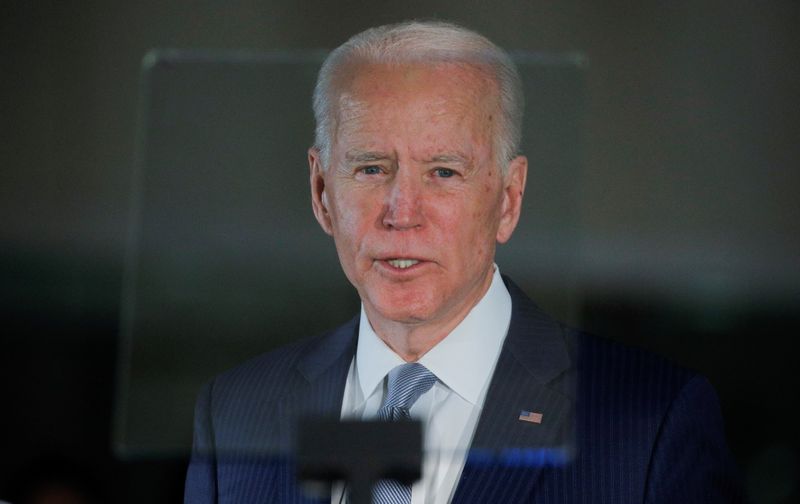By James Oliphant
WASHINGTON (Reuters) - Louisiana on Friday became the first U.S. state to postpone its presidential nominating contest because of the coronavirus pandemic, while four states holding their primaries next week said those elections would go forward as planned.
The Southern (NYSE:SO) state said it would reschedule voting in the run-up to the Nov. 3 election because of the outbreak. Officials there said they would postpone their scheduled April 4 primary to June 20 "to best protect the health and safety of Louisiana voters and voting officials," Louisiana Secretary of State Kyle Ardoin said at a news conference.
The four states holding their primaries on Tuesday - Arizona, Florida, Illinois and Ohio - said in a joint statement they would proceed with their contests while taking steps to ensure public safety.
"Americans have participated in elections during challenging times in the past, and, based on the best information we have from public health officials, we are confident that voters in our states can safely and securely cast their ballots in this election, and that otherwise healthy poll workers can and should carry out their patriotic duties on Tuesday," election officials from the four states said.
"We're definitely voting. They voted during the Civil War. We're gonna vote," Florida Governor Ron DeSantis told reporters on Friday.
Louisiana's move poses a problem for the Democratic Party, which mandates all nominating contests must be held by early June or states risk losing delegates to the party convention in July.
Kristen Clarke, the president of the voting rights group Lawyers' Committee For Civil Rights Under Law, said the state should have pursued other options, like expanding early and absentee voting.
"The chose the most extreme, drastic option, Clarke said.
Democratic front-runner Joe Biden's campaign urged states to hold votes as scheduled.
"As election officials working with public health officials are demonstrating throughout the country, our elections can be conducted safely in consultation with public health officials," said Kate Bedingfield, Biden's deputy campaign manager.
OFF THE TRAIL
Biden and Democratic rival Bernie Sanders, both seeking to challenge Republican President Donald Trump, have taken themselves off the campaign trail for the time being while searching for new, creative ways to connect with voters.
Biden's attempt to connect with voters via a virtual town hall on Friday was plagued by early technical glitches that delayed its start and made most of his early remarks impossible to understand. The event provided the first glimpse into the challenges of running a virtual campaign.
He used his opening remarks to discuss his plan for tackling the coronavirus crisis and pleading for citizens to listen to public health officials and wash their hands.
He then turned to virtual attendees for questions and comments. The first person said, "Mr. Biden's speech was garbled the entire time."
The coronavirus has so far killed at least 40 people and sickened more than 1,600 across the United States, forcing schools to close, professional sports leagues to suspend or end their seasons, and many employees to work from home.
On Thursday, both Biden and Sanders called for a more aggressive response from Trump and the U.S. government.
Biden's Friday town hall is not entirely unprecedented. During Trump's impeachment trial in January, when senators running for president were forced to remain in Washington, candidates Amy Klobuchar and Elizabeth Warren held telephone events. Both have since left the race.
Biden has won over much of the Democratic establishment while stringing together wins in such states as Michigan, Texas and North Carolina, giving him a commanding edge in the contest over Sanders.
The four Tuesday contests could put Biden on an unstoppable path toward nomination at the party's convention.
Biden and Sanders will participate in a nationally televised debate on Sunday at CNN in Washington, held without a studio audience out of health concerns, allowing them a final chance to address voters in those states.
Even without traditional rallies, Biden has financial resources at his disposal. With new contributions pouring in, Biden's campaign is running TV ads in Florida, Illinois and Ohio. The campaign has ramped up spending on Facebook (NASDAQ:FB) ads.

He also is backed by a super PAC - an independent political action committee that may raise unlimited sums of money - called Unite the Country. Another leading Democratic outside group, Priorities USA Action, said this week it would defend Biden against Trump's attacks, with the expectation he will be the nominee.